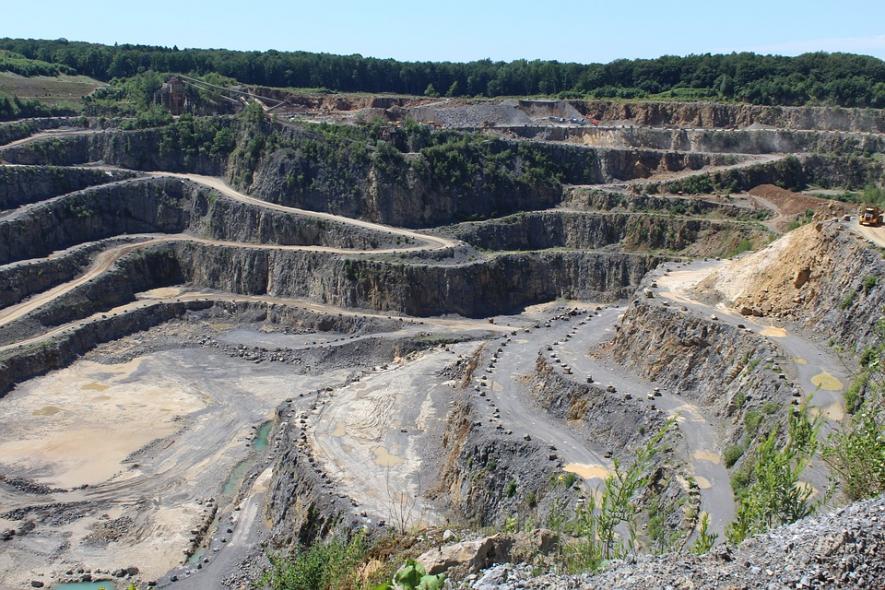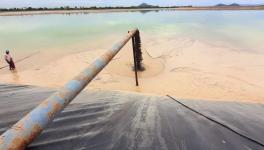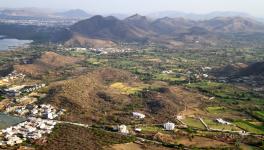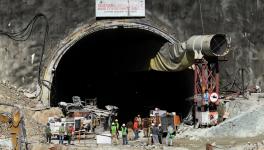Has Meghalaya Govt Failed to Curb Illegal Stone Mining?

Representational Image
New Delhi: Taking note of governmental failure to curb rampant illegal mining activities, the High Court of Meghalaya has directed all District Collectors of the northeastern state to take steps, including criminal action, against those extracting mineral resources in an unauthorised manner. In an order issued on December 10, the High Court directed the Chief Secretary of Meghalaya to file a report on action taken against illegal miners.
"Collectors to ascertain from any person undertaking mining activities in the relevant districts as to the authority therefor and the adherence to the conditions of the licenses, if any, which may be granted. The slightest suspicion that any person is functioning without a license or in excess of the areas or conditions specified in the license should prompt the District Collector to take immediate appropriate steps, including initiating criminal action against the persons concerned. The entire matter should be monitored by the Chief Secretary and a report filed, indicating the action which has been taken," the High Court directed.
The direction was issued by a High Court division bench comprising judges Chief Justice Sanjib Banerjee and Justice W Diengdoh while hearing a Public Interest Litigation (PIL) alleging rampant illegal stone quarrying in certain parts of East Khasi Hills and West Jaintia Hills districts of Meghalaya.
"It is needless to say that local tribal communities are most affected by the practice of illegal stone quarrying. Land grabbing of tribal communities by the highly influential people who have taken to illegal mining is very common. Tribal communities have been alienated from their land, and traditional modes of living," Meghalaya-based activist Agnes Kharshiing told the Newsclick. She claimed, "Mining is carried out in the most unscientific manner using heavy machinery, like earthmovers. As a result, boulders often fall off from hillocks damaging the roads. Local inhabitants are always at physical risk from falling boulders. Their houses are damaged from tremors caused by the blasting of rocks with explosives. Local vegetation has been degraded beyond redemption in most places, from Shillong to Dawki. In certain instances, entire hillocks have disappeared due to the greed of miners."
The high court order has been issued in the backdrop of frequent vacillations on the part of the Conrad Sangma-headed BJP-allied Meghalaya government vis-à-vis the prevalence of largescale illegal stone mining in the state.
A separate case about the illegal mining of stone and gravel in Ri Bhoi district of Meghalaya is presently pending before the Eastern Zone of the National Green Tribunal. The state government had informed the court in August 2020 that it has been unable to extract environmental compensation from illegal miners because most of them are "uninformed tribal businessmen, who do not possess an adequate knowledge of law".
"The state government had initially refused to take cognisance of illegal mining altogether when the petition was filed in the green tribunal. But an expert committee, which was appointed by the tribunal, pointed out numerous instances of illegal mining in the state. Meghalaya government had no option but to do a complete turnabout to accept that illegal mining was indeed taking place in the state," said environment lawyer Salik Shafique.
Exactly a year after claiming that it was unable to penalise violators, in August 2021, the Meghalaya government informed the NGT that it had imposed penalties worth over Rs 153 crore as environmental compensation on 133 stone mining units that were operating illegally in the state.
Shafique added, "Almost the entire district of Ri Bhoi has been ravaged by illegal stone mining. We asked the Meghalaya government to conduct a carrying capacity study to determine the extent to which mining can be permitted in the district, given its small size. However, the government responded with a study on the load-bearing capacity of the roads in the district. The government has till date not even conducted a downstream impact study to find out the possible adverse impacts to other areas from mining in Ri Bhoi."
The dilly-dallying of the Conrad Sangma government notwithstanding, court-appointed expert committees alongside activists and judicial officers have alleged the prevalence of illegal mining in Meghalaya.
The PIL, on the basis of which all District Collectors of the state have been asked to take coercive action against illegal miners, was taken up suo motu by the Meghalaya High Court after one of its judicial officers wrote a letter highlighting instances of unlawful mining of stones and boulders. In a letter dated May 31, 2019, Deputy Registrar of Meghalaya High Court Anindita Y Sarki alleged to have come across apparently unscientific methods of stone quarrying during an official visit to Cherrapunji and Dawki towns, respectively, in the districts of East Khasi Hills and West Jaintia Hills, which lie on the border of neighbouring Bangladesh.
"During the course of conversation with him [a senior BSF official], it was learnt that every day, 650 trucks loaded with boulders are exported to Bangladesh … what disturbed me was the sight of mountains being destroyed and excavated in various places on the way using machines and other tools. Dumped boulders and stones were also noticed adjacent to the site of destruction … similar sights were also spotted on 26.05.2019 when I was on my way to Cherrapunji," Sarki mentioned in the letter.
The High Court has pointed out the lack of "political will" on the part of Conrad Sangma's government as the reason behind flourishing illegal mining activities in Meghalaya. Shillong-based senior lawyer Subir Sen, who the court has appointed as Amicus Curiae in this case, submitted to the court that illegal coal mining was rampant in Meghalaya and that the state government had done very little to curb the practice.
"It is submitted by learned Amicus that there is rampant illegal mining all over the state, but little action had been taken by the state in such regard. First, there has to be a political will to curb and altogether stop illegal mining. In this cash-strapped state, mining licenses may be a source of revenue and the state should file a report through the Chief Secretary as to the measures which have been adopted to stop illegal mining," the division bench of Chief Justice Banerjee said in its order.
In the petition filed before the NGT in August 2019 by RTI activist Jitul Deka, he alleged that rampant illegal stone mining in Meghalaya's Ri Bhoi district, adjoining Assam, led to deforestation well as pollution in various water bodies. It was further alleged that the three Autonomous Hill Councils of Meghalaya – Khasi Hills, Garo Hills and Jaintia Hills – have failed to uphold their constitutional duties by failing to curb practices like illegal stone mining, which are detrimental to the lives and livelihood of local tribal communities.
Legal experts pointed out that the Meghalaya government has created an artificial classification in so far as mining of stones is concerned based on the end-use of the extracted mineral. Building stones falls within the definition of 'minor minerals' under the Mines and Minerals (Development & Regulation) Act, 1957, known by its acronym MMDR Act, 1957. The Meghalaya Minor Mineral Concession Rules, 2016, places 'minor minerals' in Schedule III, titled 'Minor Minerals in Uses other than Industry'. However, gravel and stones have been excluded from the definition of 'Minor Minerals' in Schedule II, titled 'Minor Minerals for Industrial and Specific Uses'. Consequently, mining gravel and stone quarrying has been exempted from the Environment Impact Assessment (Amendment) Notification, 2016.
This artificial classification continues to exist despite the Supreme Court having ruled that the provisions of the MMDR Act, 1957 – in which building stones are classified as minor minerals – will apply to Sixth Schedule areas, and therefore, to the tribal regions and hill districts of Meghalaya. The apex court issued the order on July 3, 2019, in the matter of the State of Meghalaya versus All India Dimasa Students Union & Others.
In Meghalaya, excavation of minor minerals falls under the purview of the state's forest department, which claimed to be taking regular action in the matter. "We undertake patrolling activities regularly to prevent illegal mining of stones and boulders. Task forces have been constituted at the district levels to keep a check on illegal mining. These task forces are headed by the respective District Collectors. Whenever these task forces come across instances of illegal stone or boulder mining, punitive action is taken," Dr C Manjunatha, Secretary of Meghalaya government's Department of Forests & Environment, told the Newsclick.
The writer is an independent journalist.
Get the latest reports & analysis with people's perspective on Protests, movements & deep analytical videos, discussions of the current affairs in your Telegram app. Subscribe to NewsClick's Telegram channel & get Real-Time updates on stories, as they get published on our website.
























